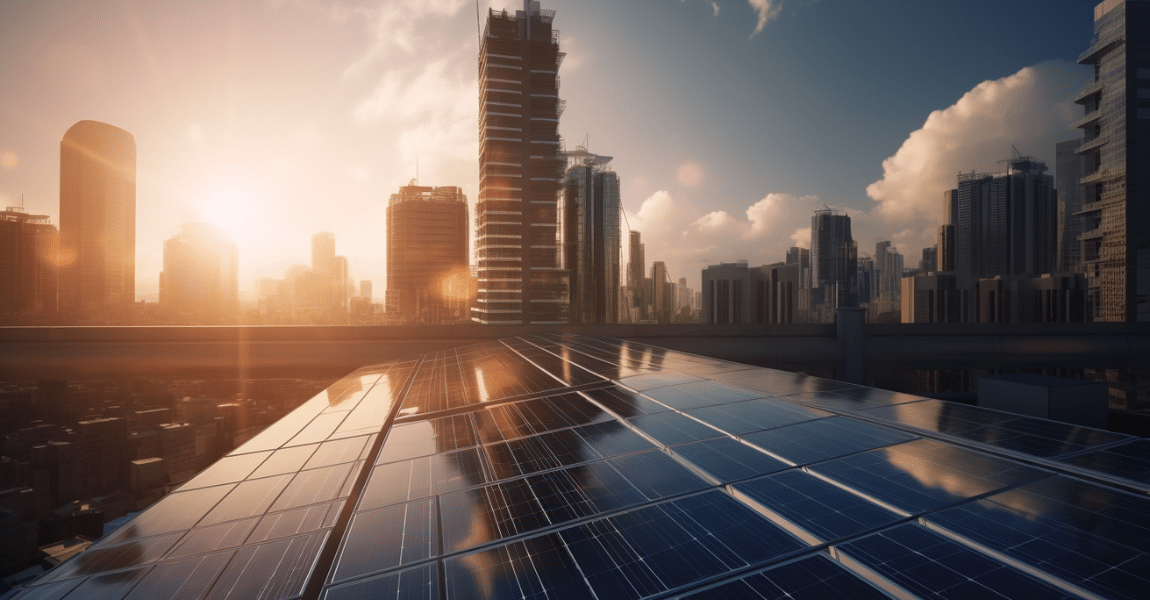Solar panel installation has become increasingly popular in recent years due to its potential to save money on energy bills and reduce carbon emissions. However, homeowners and businesses alike may be uncertain about the financial and environmental benefits of solar panel installation.
This article seeks to objectively evaluate whether solar panel installation is a good investment by analyzing both the financial and environmental benefits, as well as the factors that should be considered before making a decision.
The financial benefits of solar panel installation are significant. By generating their own electricity, homeowners and businesses can significantly reduce their energy bills and even earn money by selling excess electricity back to the grid. Additionally, solar panel installation can increase the value of a property, making it a sound investment in the long-term.
However, the upfront costs of installation can be high, and the actual savings depend on factors such as the amount of sunlight the property receives and the size of the system installed. Therefore, a thorough analysis of the financial benefits must be conducted before making a decision.
Financial Benefits of Solar Panel Installation
The potential financial benefits of solar panel installation may make it a worthwhile investment for those seeking to reduce their energy costs and increase their property value.
One of the primary financial benefits of solar panel installation is the savings potential. By producing their own electricity, homeowners can reduce their reliance on the grid and lower their monthly energy bills. The amount of savings varies depending on factors such as the size of the solar panel system, the amount of sun exposure in the area, and the cost of electricity in the region.
Another important financial benefit of solar panel installation is the return on investment. While the upfront cost of installation can be high, solar panels have a long lifespan and can generate electricity for decades, providing a significant return on investment over time. Additionally, many states offer incentives and tax credits to encourage homeowners to install solar panels, further increasing the potential financial benefits.
The financial benefits of solar panel installation are significant and may make it a wise investment for those looking to reduce their energy costs and increase their property value. The savings potential and return on investment make solar panels an attractive option for homeowners, and government incentives further increase the financial benefits. As solar technology continues to improve and the cost of installation decreases, the financial benefits of solar panel installation will likely only increase in the coming years.
Environmental Benefits of Solar Panel Installation
One potential advantage of adopting solar panel technology is the positive impact it can have on the environment. By harnessing the power of the sun, solar panels generate electricity without emitting harmful pollutants into the air. This is a significant benefit in combatting climate change, as carbon dioxide emissions from traditional energy sources like coal and natural gas are a leading contributor to global warming.
In addition to reducing emissions and combatting climate change, solar panel installation also promotes sustainable energy sources and protects the planet. The sun is a renewable energy source, meaning it will never run out, unlike fossil fuels that are finite resources. By investing in solar power, individuals and businesses can help to reduce our reliance on nonrenewable energy sources and promote a cleaner, healthier planet for future generations.
Furthermore, solar panels can have a positive impact on local ecosystems. Traditional energy production methods can have devastating effects on wildlife and their habitats, such as oil spills that pollute waterways and harm marine life. However, solar panels have a much lower impact on the environment as they don’t produce harmful pollutants or require large-scale land use.
Overall, solar panel installation is a good investment not only for financial benefits, but also for the positive impact it can have on the environment and the planet as a whole.
Factors to Consider Before Installing Solar Panels
Before adopting solar panel technology, it is essential to consider various factors that may impact the effectiveness and efficiency of solar energy systems.
One of the most important factors to consider is the cost effectiveness analysis of the solar panel installation. The initial cost of installing solar panels can be expensive, but it is important to weigh this against the long-term benefits of solar energy, such as reduced electricity bills and increased property value.
Another factor to consider before installing solar panels is the availability of government incentives. Many governments offer incentives to encourage the adoption of renewable energy, including solar panels. These incentives can take the form of tax credits, rebates, or grants, and can significantly reduce the initial cost of installation. It is important to research and understand the incentives available in your area before making a decision on installing solar panels.
It is important to consider the specific conditions of your property before installing solar panels. Factors such as the orientation of your roof, the amount of sunlight your property receives, and any shading from surrounding buildings or trees can impact the effectiveness of solar panels. It is recommended to consult with a solar panel expert before installation to ensure that the panels are installed in the most optimal location for maximum efficiency.
In conclusion, before installing solar panels, it is important to consider the cost effectiveness analysis, government incentives, and specific conditions of your property. By considering these factors, you can make an informed decision on whether solar panel installation is a good investment for your property.
Evaluating Your Energy Needs
Assessing the energy requirements of your property is a crucial step in determining the most suitable renewable energy solution for your needs. Before installing solar panels, you need to evaluate your energy consumption. This will help you determine the size of the solar panel system required to meet your energy needs.
You will need to consider how much energy you use on a daily, weekly, and monthly basis. This information will be essential in determining the size of the solar panel system required.
Cost analysis is another crucial aspect to consider when evaluating your energy needs. Installing solar panels can be an expensive upfront investment. However, the benefits of solar energy outweigh the costs in the long run. A cost analysis will help you determine the payback period of the solar panel system and the overall savings in energy costs.
You need to consider the cost of installation, maintenance, and energy storage when conducting a cost analysis.
Evaluating your energy needs is a crucial step in determining whether solar panel installation is a good investment for your property. It helps you determine the size of the solar panel system required and the overall costs involved. A cost analysis will help you determine the payback period of the solar panel system and the overall savings in energy costs.
By assessing your energy needs, you can make an informed decision on whether to invest in solar panel installation or not.
Choosing the Right Solar Panel System for Your Property
Selecting an appropriate renewable energy solution that meets your property’s energy requirements can be a challenging decision. When choosing a solar panel system for your property, it is important to consider factors such as panel efficiency and installation cost.
Panel efficiency refers to the amount of energy that solar panels can convert from sunlight into usable electricity. High-efficiency panels are more expensive but can generate more energy, making them a better investment in the long run.
Another important factor to consider when choosing a solar panel system is the installation cost. The installation cost of a solar panel system can vary depending on the size of the system and the complexity of the installation. However, it is important to note that the initial investment can be offset by the savings on electricity bills over time. It is important to consult with a professional installer to determine the most cost-effective and efficient solar panel system for your property.
In addition to panel efficiency and installation cost, there are other factors to consider when selecting a solar panel system for your property. These include the climate in your area, the amount of sunlight your property receives, and the size and orientation of your roof.
By taking these factors into consideration, you can select a solar panel system that is best suited for your property and can provide the most energy savings over time.
Frequently Asked Questions
What kind of maintenance do solar panels require?
Solar panels require regular cleaning to ensure maximum efficiency, as dust and debris can accumulate on the surface. Professional inspections should also be conducted to identify any potential issues and ensure proper functioning.
How long do solar panels typically last?
Solar panel lifespan varies between 25-30 years. Replacement cost is usually factored in when determining the ROI of solar panel installation. Long-term financial benefits outweigh initial costs for those who plan to stay in their home for an extended period.
Can I still use electricity from the grid if I have solar panels installed?
Electricity from the grid can still be used with solar panels installed. Grid reliance remains essential when solar energy production is insufficient. Energy storage solutions, such as batteries, can reduce grid reliance and increase self-sufficiency.
Will solar panels increase the value of my home?
Solar panels can increase the resale value of a home and positively impact its appraisal. Studies show that homes with solar panels sell for more than those without, and the value of the panels is proportional to their energy output.
How do I know if my roof is suitable for solar panel installation?
A roof assessment is necessary to determine if solar panel placement is viable. Factors such as roof angle, shading, and structural integrity should be considered. Professional installers can provide recommendations based on data-driven assessments.
Conclusion
Solar panel installation has become increasingly popular as an alternative energy source in recent years. This article has examined the financial and environmental benefits of solar panel installation, as well as the factors that should be considered before making the investment.
From a financial standpoint, solar panel installation can be a good investment for homeowners and businesses alike. It can significantly reduce or even eliminate electricity bills, and depending on where you live, there may be government incentives or tax credits available to offset the initial cost of installation. However, it is important to evaluate your energy needs and choose the right solar panel system for your property in order to maximize cost savings.
In addition to the financial benefits, solar panel installation also has positive environmental impacts. It is a renewable energy source, does not produce greenhouse gas emissions, and can reduce dependence on fossil fuels. Before installing solar panels, it is important to consider factors such as the amount of sunlight your property receives and any potential shading from nearby trees or buildings.
Overall, solar panel installation can be a good investment for those looking to reduce their electricity bills and environmental impact. However, it is important to carefully evaluate your energy needs and choose the right system for your property in order to maximize cost savings and benefits. As solar technology continues to improve and become more affordable, it is likely that we will see even more widespread adoption of this alternative energy source in the coming years.


